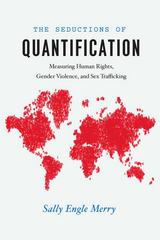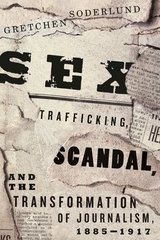
With The Seductions of Quantification, leading legal anthropologist Sally Engle Merry investigates the techniques by which information is gathered and analyzed in the production of global indicators on human rights, gender violence, and sex trafficking. Although such numbers convey an aura of objective truth and scientific validity, Merry argues persuasively that measurement systems constitute a form of power by incorporating theories about social change in their design but rarely explicitly acknowledging them. For instance, the US State Department’s Trafficking in Persons Report, which ranks countries in terms of their compliance with antitrafficking activities, assumes that prosecuting traffickers as criminals is an effective corrective strategy—overlooking cultures where women and children are frequently sold by their own families. As Merry shows, indicators are indeed seductive in their promise of providing concrete knowledge about how the world works, but they are implemented most successfully when paired with context-rich qualitative accounts grounded in local knowledge.

Case studies explore how women’s rights shape state responses to sex trafficking and show how politically empowering women can help prevent and combat human trafficking
Human trafficking for the sex trade is a form of modern-day slavery that ensnares thousands of victims each year, disproportionately affecting women and girls. While the international community has developed an impressive edifice of human rights law, these laws are not equally recognized or enforced by all countries. Sex Trafficking and Human Rights demonstrates that state responsiveness to human trafficking is shaped by the political, social, cultural, and economic rights afforded to women in that state.
While combatting human trafficking is a multiscalar problem with a host of conflating variables, this book shows that a common theme in the effectiveness of state response is the degree to which women and girls are perceived as, and actually are, full citizens. By analyzing human trafficking cases in India, Thailand, Russia, Nigeria, and Brazil, they shed light on the factors that make some women and girls more susceptible to traffickers than others.
This important book is both a call to understanding and a call to action: if the international community and state governments are to responsibly and effectively combat human trafficking, they must center the equality of women in national policy.

READERS
Browse our collection.
PUBLISHERS
See BiblioVault's publisher services.
STUDENT SERVICES
Files for college accessibility offices.
UChicago Accessibility Resources
home | accessibility | search | about | contact us
BiblioVault ® 2001 - 2024
The University of Chicago Press









